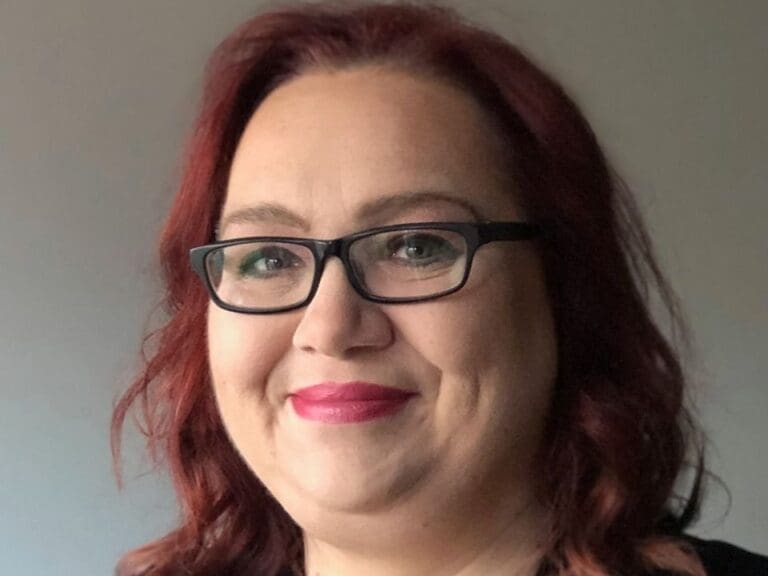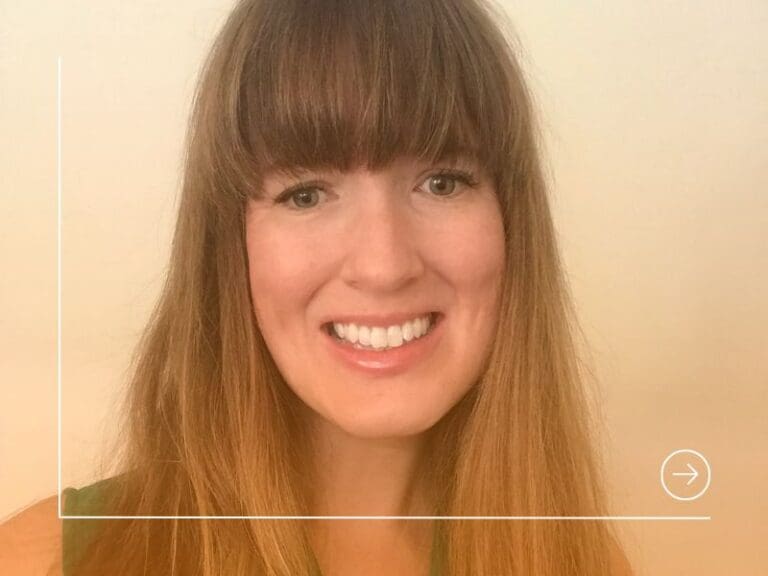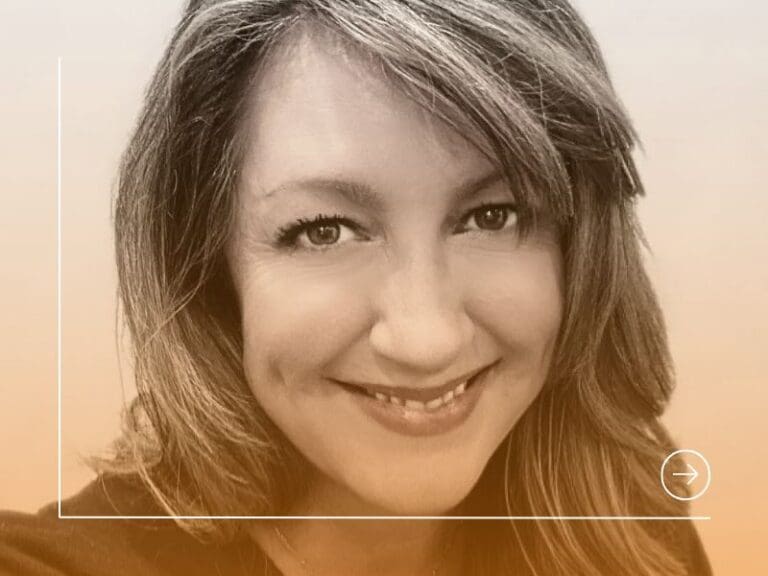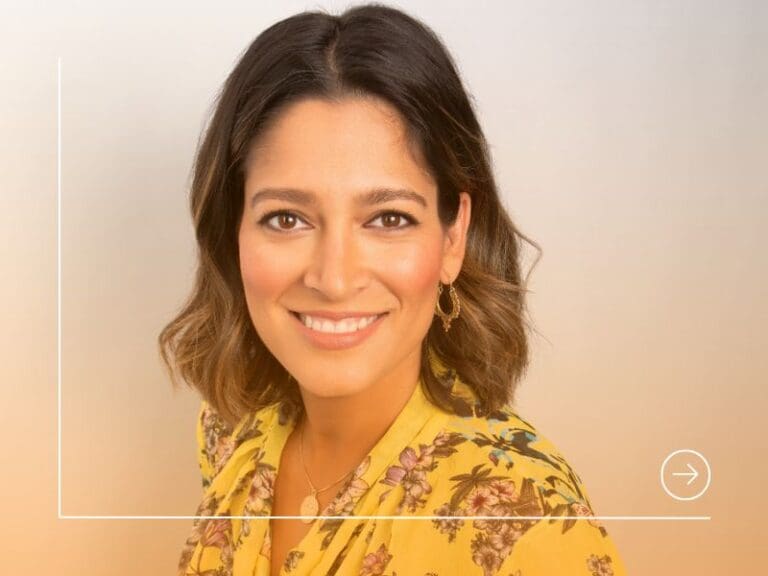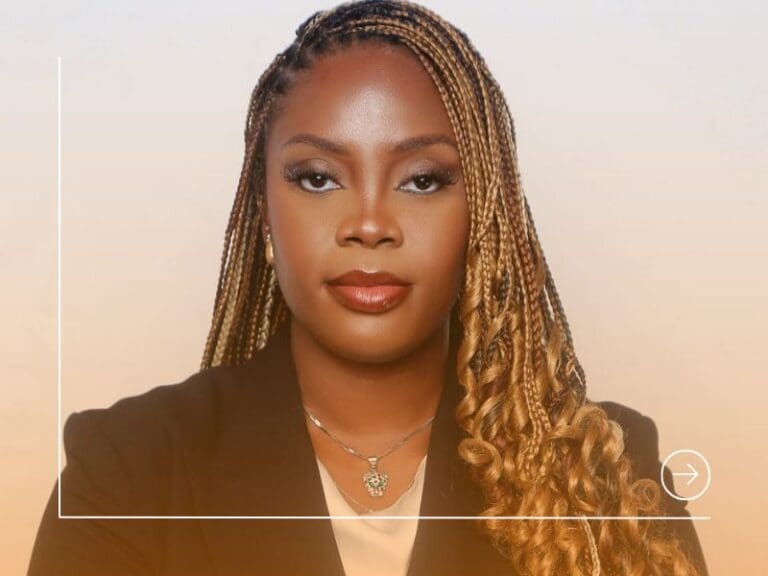In particular, she revels in ‘getting under the hood of the system’, working on the back-end mechanics that are critical to any website or application working.
In getting to this point, Joanne has almost always represented a minority. At school, her passion for computing was a domain that was only open to boys, and out of the 35 students in her university’s software engineering cohort, she is the only woman of five who has remained in development.
Today, through speaking and public engagement, Joanne is on a mission to ensure that women are part of the coding conversation. Her message is clear – if women aren’t a part of writing the code, then you end up with software that isn’t fit or intuitive for female end-users. Likewise, by shutting women out from the conversation, there is an enormous risk of talent being lost and progress being stifled.
We caught up with Joanne, at Suresite Group, to talk more about why it’s crucial for women to be part of the coding conversation, what she’s currently engaged in, and what advice she has for other women pursuing a career in coding.
CAN YOU GIVE AN EXAMPLE DURING YOUR CAREER THAT UNDERLINES HOW IMPORTANT IT IS FOR WOMEN TO BE INVOLVED IN CODING?
At a start-up I formerly worked at, the company was creating a conveyancing platform that would be used to manage customer service on a daily basis. But the problem was, none of the developers had spoken with the customer service team, the majority of which were women, about how they worked and what features would help cut a five-minute task down to 30 seconds. Those sorts of conversations and understanding between stakeholders were lacking, and having women in the coding team could have brought a more holistic approach.
WHAT HAVE YOU BEEN WORKING ON AT SURESITE?
One of the industries Suresite serves – forecourt retailers – is niche and often slow to adopt new technologies and practices, so it’s great to work for a company that’s at the forefront of innovation and leading the way in its field.
At the moment, my main priority is working on a notification service project that will provide our customers with the ability to receive portal notifications to multiple platforms, including text and later, WhatsApp. That means customers can be alerted to urgent notifications, such as wetstock alarms – which detect potential fuel thefts, leaks or slowing pump flow rates – immediately, rather than getting lost in an email inbox. We’re almost at the point where we can launch, and I’m excited to see it up and running and kickstart what will be a more interactive, real-time journey that will really maximise the customer forecourt experience.
It feels like work of this nature is a step-up in sophistication and that we have a great opportunity to make a big difference and drive positive change.
WHAT ADVICE WOULD YOU GIVE TO WOMEN SEEKING TO PURSUE A CAREER IN CODING?
This is an interesting one because women in IT often drop out of coding quite quickly after starting off as a developer. I think this is partly because they have the soft skills that a lot of men don’t possess, meaning they tend to branch out into project management, front-end design or product development.
My best friend’s daughter actually goes against the grain a bit. She is a software developer working at Ubisoft, and it’s been an absolute joy to see her come through university, get her masters, and secure a job role she’s wanted for a very long time.
She’s been very persistent, and that unfortunately still feels like a requirement for women to get into coding. I was something of a unicorn in that I’ve never come across another female lead developer in my career that is purely focused on development. There are still glass ceilings to be broken down, and women should not be afraid of doing it – this is still a really great career to pursue.
DO YOU THINK THE UK IS DOING ENOUGH TO ATTRACT MORE WOMEN INTO CODING?
I think we could be doing more. The UK is still trying to push women into the traditional STEM categories such as doctors, pharmaceuticals and biochemistry, and even traditional engineering. My son is currently doing a mechatronics degree that involves a mix of applied physics and programming. There are a couple of girls on the same course, but they are not getting the support they need – support that they might perhaps receive in a more ‘acceptable’ female STEM discipline, shall we say.
WHAT NEEDS TO HAPPEN TO ENCOURAGE MORE INCLUSION IN THE SECTOR?
Suresite is a great example of a progressive and inclusive company that recognises the importance of diversity in leadership positions. I’d like to see more companies follow Suresite’s footsteps and recognise the value of the unique perspectives and contributions of women in tech – it doesn’t just make business-sense, but helps create an inclusive culture where everyone can thrive.
Then I think those of us who have managed to reach senior roles need to find a way of being more visible, so that young women and girls can see that people like them can make a career out of something they love doing. I was actually a fairly late entrant, but it’s the younger women coming through now who are going to break the glass ceiling wide open. We are getting more high-profile success stories, but there’s still not enough.
What is promising is that programming is being taught in secondary schools, which will expose more girls to coding at a young age. I’m 52, so at school I didn’t have that privilege. My interest in coding came because I loved puzzles and hated not knowing how a computer worked – I always had a problem-solving side to me.
Social mobility is another important aspect of this. Almost everybody has some kind of smartphone, but how many have access to laptops and computers? My first boyfriend at school had a ZX Spectrum; I used to go to his house a lot, ostensibly to see him, but also to use his computer, as I didn’t have one then! There is a lot of talk about levelling up, but that needs to translate into action that will provide opportunities for people to make better lives for themselves.
WHAT ARE YOUR FUTURE GOALS?
I see myself at Suresite for the foreseeable future and will soon get an electric car through an electric car leasing scheme benefit, which I’m looking forward to! Longer term I’d like to find a way of applying technology to what I’ve been looking at in my Masters Degree, which is sustainability. There is a lot of exciting work going on with AI and tech helping companies to drive their net-zero agendas.
I still love learning and feel there is a lot more for me to learn. You have to love learning in this profession because coding languages change, and technology evolves all the time. I’m a lead developer and constantly learning on the job even now. I’m also about to start management training for the first time, which is a great chance for me to adopt some new soft skills and I am grateful to Suresite for giving me that opportunity.
Coming back to the question about what advice I would give… when the opportunities occur, put your foot forward and take them. It is never too late to learn something new.


